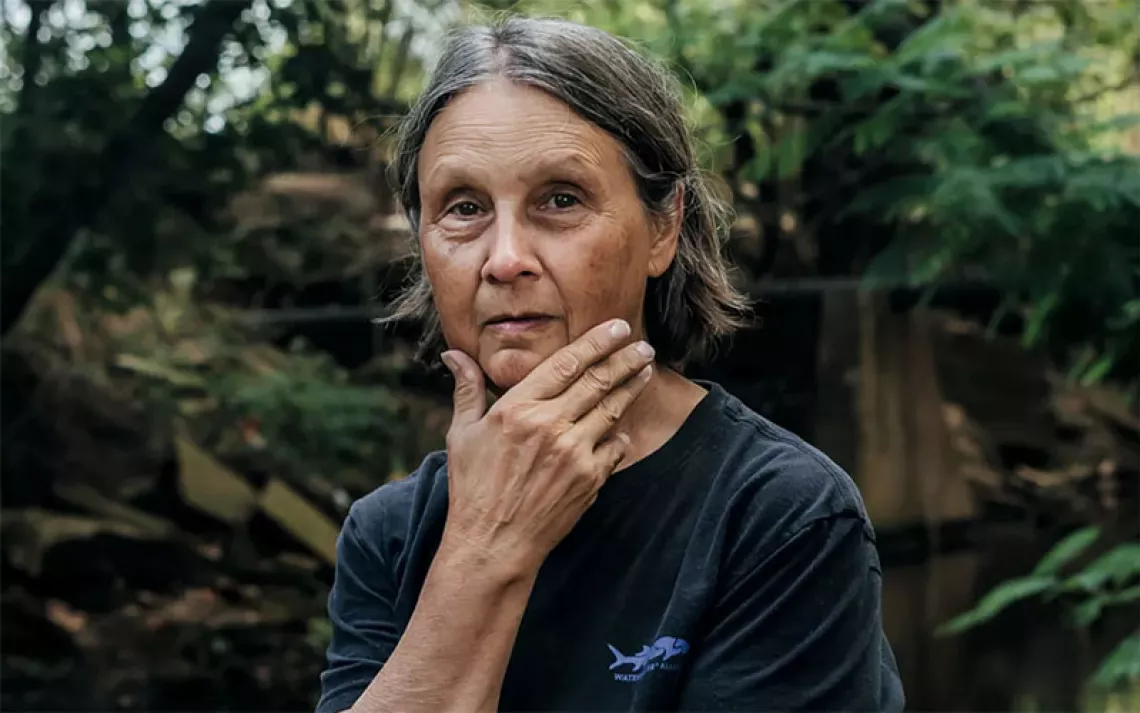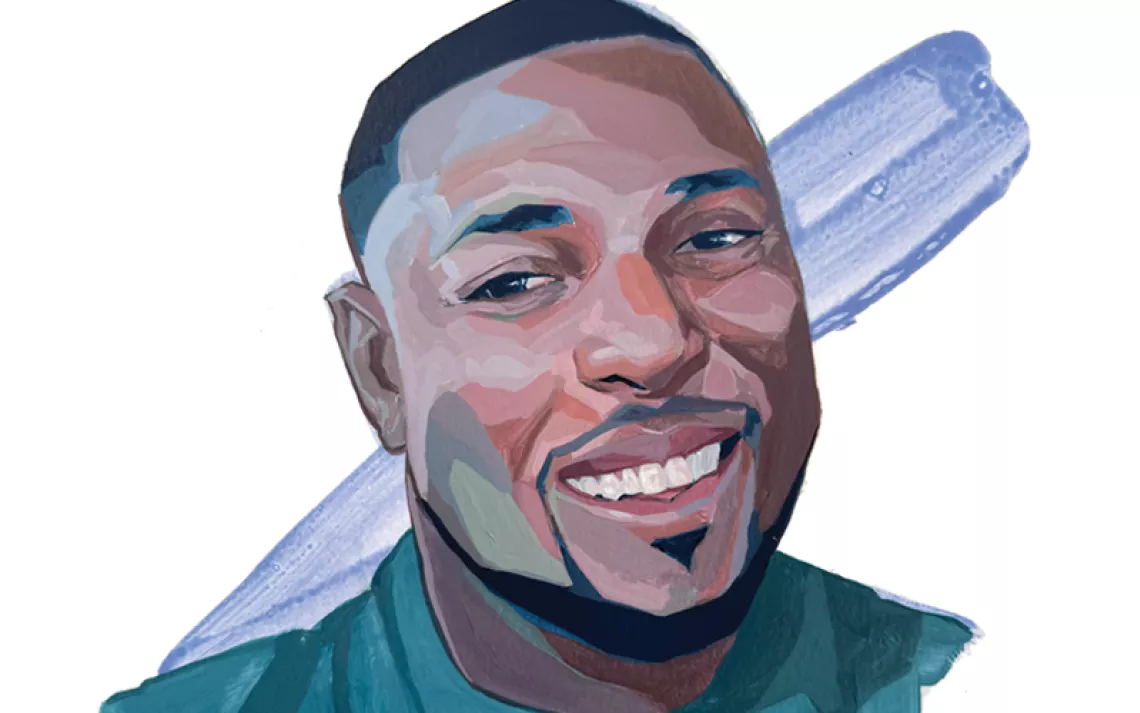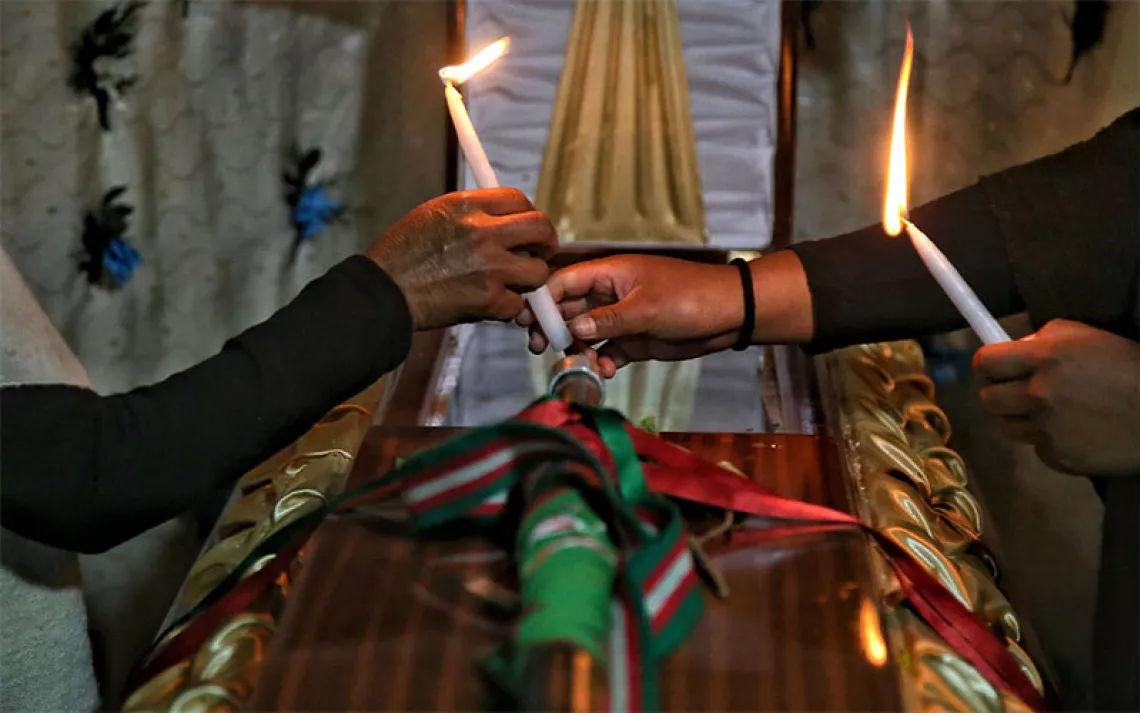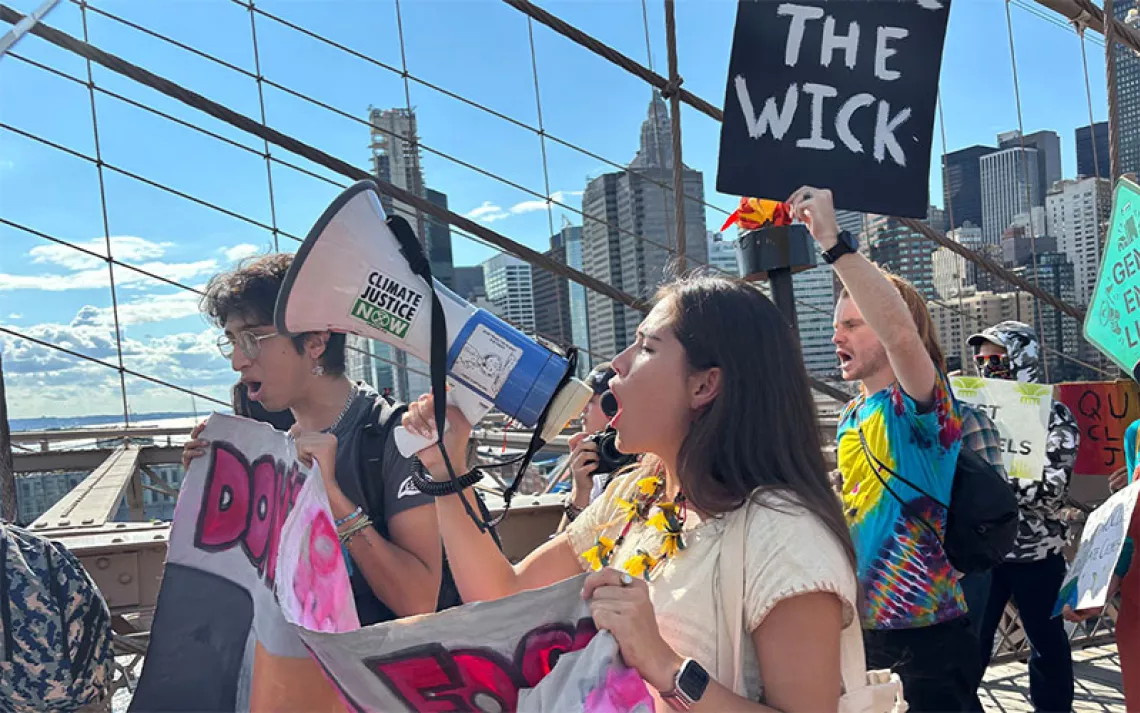Moving at the Speed of Trust
Organizer Ren-Caspar Smith takes on coal in Denver
Ren-Caspar Smith, Fossil Free Front Range organizer
Denver, Colorado

I graduated from high school in 2016. Seeing Trump get elected immediately after Obama was a jarring experience for me, as a young, queer person of color. I had a lot of anger and didn't know what to do with it. I felt pretty powerless.
About a year after graduating, I came across an ad on Facebook that said "Help stop Trump's attacks on our environment and make X dollars an hour." It turned out to be an ad for a canvassing position with a nonprofit organization. I was anxious about being outside by myself all day and striking up conversations with strangers, but I decided to give it a shot. My first day, I didn't raise a single cent until the last door. It was hard work, but over the summer I fell in love with it. Later that year, I moved from Los Angeles to Denver and went on to direct an office there.
Eventually, though, I felt stuck in that job. I was complaining about it one day to a friend, and he recommended that I apply for a position at the Sierra Club. I was hired just as the pandemic was beginning. My focus is on moving Colorado's investor-owned utilities off coal and gas—namely Xcel Energy, the biggest utility in the state. A disproportionate number of its plants are located in low-income communities of color—one is just a few miles from my house, at the northern-most edge of Denver. That area was named the most polluted zip code in America a few years back. It has gas plants, an oil refinery, and a massive freeway intersection that dislocated a lot of people when it was built. There are layers and layers of pollution.
My first three months at the Sierra Club, all I did was read about the history of the area—when all the different polluters came, the freeway construction and its legacy. I would be like, "Alright, I've got a solid foundation. I'm ready to start having some conversations with people," and then I would realize, "I need to slow down even more and just move at the speed of trust with folks." It's about shifting generational trauma, and that work takes time and intentionality.
For the past year, Xcel has been planning how it will generate electricity in the coming years. The company has made some strides toward renewable energy, but if it gets its way, it will be operating the last coal plant in Colorado. The planning process is monumental, but most people have no idea that it's happening. It's not like Xcel sends you a notice with your bill that says, "Hey, you can give public comments about where your energy comes from." It's not easy to know how to participate unless organizers are actively reaching out to communities to give them the tools to get involved.
I've been working to gather public comments and encourage people to attend hearings. This past year, we worked on two hearings—one in Pueblo, near Xcel's biggest coal plant, where two-thirds of the people in attendance spoke in favor of its early retirement, and then a Zoom one that set a participation record. Eighty-two people ended up speaking, and 78 of them were in favor of advancing renewable energy. Overall, the hearings were a huge success. [In April, Xcel proposed closing the Pueblo plant ahead of schedule, by 2031.]
When your only motive is raising money, you're only going to talk to people who have money. If I could boil down the shift that I've made in the work that I've been doing in the past two years, it's gone from transactional to transformational. That's the work that I'm aspiring to do, the work that I'm growing toward.
This article appeared in the Summer 2022 quarterly edition with the headline "Moving at the Speed of Trust."
llustration by Jon Stich
 The Magazine of The Sierra Club
The Magazine of The Sierra Club



